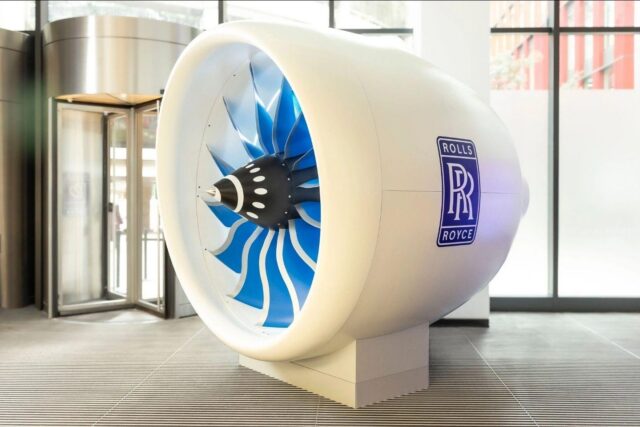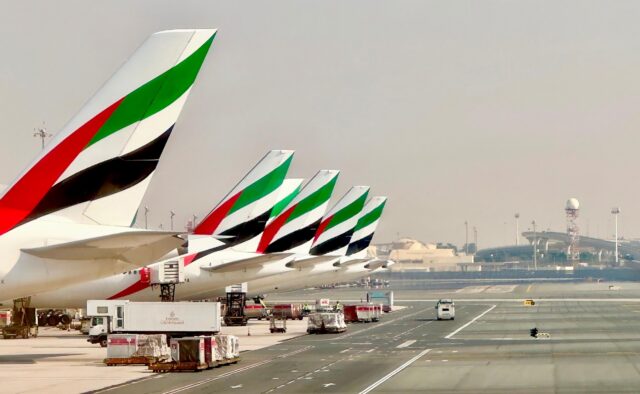
The UK Department for Transport has confirmed 17 SAF production companies that will benefit from multi-million pound investment.
UK aviation minister Mike Kane has confirmed a £63 million investment in 17 innovative companies to advance the production of domestic sustainable aviation fuel (SAF) production.
The investment is part of the UK government’s Advanced Fuel Funds (AFF) competition, which was initiated in July 2022, to scale up cleaner aviation technologies. The government has so far provided £198 million through the fund, with the latest announcement marking the third window of funding.
AFF competition winners

The winning companies include Oxford-based start-up, OXCCU Tech, which was awarded £3.1 million towards developing a demonstration plant at London Oxford Airport. Meanwhile, LanzaJet, which is building a commercial-scale plant in South Wales was awarded £10 million and LanzaTech was awarded £6.4 million for its commercial scale SAF plants.
Other winners include Alfanar Energy, Altalto, British Sugar, Carbon Neutral Fuels, Equilibrion, Equinor Low Carbon UK, Essar Oil/ EET Fuels, ETFuels UK, LanzaTech, NorthPointe Energy, Power2X Solutions, SuMo Engineering, University of Sheffield – which boasts some of the most advanced SAF research facilities in Europe, Willis Sustainable Fuels and Zero Petroleum.
Why investment is key to scaling SAF technologies
According to Andrew Symes, CEO and co-founder of OXCCU, the investment is a key step in scaling its technology. “This funding enables the detailed design and construction of OX2, our demonstration plant launching in 2026, and builds on the successful delivery of OX1.”
Founded in 2021, the cleantech startup is developing highly efficient and inexpensive iron-based catalysts for direct conversion of recycled carbon dioxide and green hydrogen into jet fuels and plastics.
Traditional biofuels face challenges when it comes to scaling production, including limited feedstocks and the need for hydrocarbons to be created without the use of fossil fuels. While e-fuels or synthetic fuels based on CO2 have huge potential to scale with fewer feedstock constraints, they do face constraints due to costs. By consolidating the traditional e-hydrocarbons production process from two steps down to a one-step direct hydrogenation process, OXCCU offers a cost-effective solution.
Meanwhile, Jimmy Samartzis, CEO of LanzaJet expressed his delight that Project Speedbird, developed in partnership with British Airways, has also been recognised by the Department for Transport. The UK’s first ethanol-to-SAF facility, Project Speedbird uses LanzaJet’s Alcohol-to-Jet technology to convert second-generation ethanol, produced from sources including agricultural residues and woody biomass, into SAF.
“This support demonstrates confidence in LanzaJet’s technology and the critical role ethanol-to-SAF can play in delivering economic growth, creating jobs and decarbonising air travel. Project Speedbird is vital to building a national SAF industry in the UK and to unlocking opportunity and innovation in the region.”

Boosting the UK as a global hub for SAF production
Kane underlined that low carbon fuel production could add £5 billion to the economy by 2050 and position the UK as a global hub for SAF production. He also noted that creating a clean aviation ecosystem will help kickstart the next generation of airport infrastructure and capacity.
“We’re not just backing British innovation, we’re creating thousands of high-skilled jobs and positioning the UK at the forefront of the global sustainable aviation market,” he said.
“From the labs of Sheffield to the runways of the future – this is how we kickstart economic growth, secure energy independence, and make Britain a clean energy superpower.”
Accelerating the availability and affordability of SAF
Earlier this month European aviation stakeholders including airports, airlines and regulators, highlighted that need to accelerate the availability and affordability of SAF. With aviation critical to providing vital connectivity and supporting socio-economic growth, SAF is widely accepted as being critical to achieving the industry’s net zero target.
However, transitioning to a net zero industry requires substantial investment to develop and deploy SAF at scale, upgrade infrastructure and support technological innovations within the industry. EU demand for SAF requires the construction of around 12 new industrial-scale first-of-a-kind e-SAF plants by 2050.

The UK’s AFF third funding window comes at a crucial time as industry stakeholders call for decisive policy action to support a timely and robust ramp-up of SAF across Europe. Key priorities include accelerating the development of new SAF projects and plants, increasing feedstock availability, and introducing a revenue certainty instrument to address the offtake mismatch between long-term production commitments and short-term demand.
















